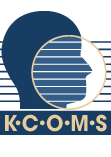Sleep apnea is a severe sleep disorder characterized by repeated interruptions in breathing during sleep, typically caused by an obstruction in the upper airway or a failure of the brain to signal breathing muscles. These interruptions can lead to fragmented sleep, low oxygen levels, and increased risk of complications such as high blood pressure, heart disease, stroke, diabetes, and daytime fatigue. Treatment is crucial because untreated sleep apnea can severely impact overall health, lead to cognitive and cardiovascular issues, and diminish the quality of life by causing excessive daytime sleepiness, mood disturbances, and impaired concentration. Addressing sleep apnea through lifestyle changes, oral appliances, or CPAP therapy can significantly improve health outcomes and overall well-being.
Types of Sleep Apnea
Obstructive Sleep Apnea (OSA)
Obstructive sleep apnea (OSA) is the most common type, characterized by a physical blockage of the upper airway during sleep. This blockage occurs when the throat muscles relax excessively, causing the airway to collapse and interrupt breathing. As a result, individuals with OSA often experience loud snoring, choking or gasping for air, and fragmented sleep. Common risk factors for OSA include obesity, enlarged tonsils or adenoids, and anatomical abnormalities in the throat or jaw. Proper treatment is essential to prevent complications such as high blood pressure, heart disease, and daytime fatigue.
Central Sleep Apnea (CSA)
Central sleep apnea (CSA) differs from OSA in that it is not caused by a physical blockage of the airway but rather by a failure of the brain to send appropriate signals to the breathing muscles. This failure results in periods where breathing stops entirely, without the obstruction seen in OSA. CSA is often associated with conditions affecting the brainstem, such as stroke or neurological disorders, and can also occur in individuals with severe heart failure. Symptoms of CSA include difficulty staying asleep, frequent awakenings, and daytime sleepiness, emphasizing the need for targeted treatment to address the condition's central and respiratory aspects.
Complex Sleep Apnea Syndrome (Mixed Sleep Apnea)
Complex sleep apnea syndrome, or mixed sleep apnea, combines obstructive and central sleep apnea. This type involves the airway blockage characteristic of OSA and the brain's failure to regulate breathing, as seen in CSA. Individuals with complex sleep apnea may experience symptoms of both conditions, including loud snoring, gasping for breath, and disrupted sleep. Managing complex sleep apnea often requires a comprehensive approach that addresses both the obstructive and central components to improve sleep quality and overall health effectively.
Symptoms of Sleep Apnea
- Frequent and loud snoring is a common symptom, particularly obstructive sleep apnea.
- Episodes of gasping or choking during sleep can disrupt rest and indicate significant breathing interruptions.
- Individuals may experience overwhelming drowsiness during the day, impairing daily activities and overall quality of life.
- Poor sleep quality can lead to difficulty concentrating, memory, and cognitive function.
- Frequent headaches upon waking can indicate sleep apnea, resulting from oxygen deprivation during the night.
- Chronic sleep disruption can lead to mood swings, irritability, and even depression.
Treatment Options for Sleep Apnea
Lifestyle Changes
One of the first steps in managing sleep apnea involves making significant lifestyle changes. Weight loss is particularly beneficial for individuals with obstructive sleep apnea (OSA), as excess weight can contribute to airway obstruction. Quitting smoking and reducing alcohol consumption can also improve symptoms, as both smoking and alcohol relax the throat muscles, exacerbating the condition. Additionally, positional therapy, where patients sleep on their sides rather than their backs, can help prevent airway collapse during sleep.
Continuous Positive Airway Pressure (CPAP
The cornerstone of treatment for moderate to severe sleep apnea is Continuous Positive Airway Pressure (CPAP) therapy. This method involves using a CPAP machine, which delivers a constant stream of air through a mask worn over the nose or mouth during sleep. The continuous airflow keeps the airway open, preventing interruptions in breathing. CPAP therapy is highly effective and often recommended as the primary treatment for sleep apnea, significantly improving sleep quality and reducing daytime sleepiness.
Oral Appliances
Oral appliances, also known as mandibular advancement devices, can be an effective alternative to CPAP for individuals with mild to moderate obstructive sleep apnea. These custom-made devices are designed to reposition the lower jaw and tongue forward, which helps keep the airway open. Oral appliances in Lexington, KY, are handy for those who cannot tolerate CPAP therapy or prefer a more portable solution. They are generally well-tolerated and can improve sleep quality and reduce symptoms. Contact us today to learn more.
Surgical Interventions
When other treatments are not effective or appropriate, surgical options may be considered for managing severe sleep apnea. Surgical procedures can range from removing excess tissue from the throat (such as tonsillectomy or uvulopalatopharyngoplasty) to repositioning the jaw or implanting a device to stimulate the airway muscles. Surgical interventions are typically reserved for cases where non-surgical treatments have failed, or structural abnormalities contribute significantly to the condition.
Sleep apnea is a severe condition that can significantly impact overall health and quality of life. Visit Kentucky Oral Surgery (KCOMS) at 3159 Beaumont Centre Circle Suite 110, Lexington, KY 40513, 2424 Sir Barton Way, Lexington, KY 40509, or 4097 Atwood Dr, Richmond, KY 40475 to schedule your appointment and start your journey toward better sleep and improved well-being. You can schedule an appointment online or call us at (859) 278-9376, (859) 207-4790 or (859) 623-7711.
